

| Cruise Region : Northern Europe |
| Company : Oceania Cruises |
| Ship : Insignia |
| Journey Start : ուր 24 հլս 2026 |
| Journey End : շբթ 29 օգս 2026 |
| Count Nights : 36 nights |
| Day | Date | Port | Arrival | Departure |
|---|---|---|---|---|
| 1 | 24.07 ուր | Ռեյկյավիկ / Iceland | 07:00 | 21:00 |
| 2 | 25.07 շբթ | Heimaey Vestmannaeyjar կղզի | 08:00 | 17:00 |
| 3 | 26.07 կիր | Օր ծովում / Sea | ||
| 4 | 27.07 երկ | Տորշավն / Faroe Islands | 07:00 | 17:00 |
| 5 | 28.07 երք | Runavík Runavík / Faroe Islands | 07:00 | 16:00 |
| 6 | 29.07 չրք | Ջուպիվոգուր / Iceland | 10:00 | 20:00 |
| 7 | 30.07 հնգ | Էսկիֆյորդուր Էսկիֆյորդուր / Iceland | 07:00 | 16:00 |
| 8 | 31.07 ուր | Ակուրեյրի / Iceland | 10:00 | 19:00 |
| 9 | 1.08 շբթ | Իսաֆյորդուր / Iceland | 09:00 | 19:00 |
| 10 | 2.08 կիր | Գրունդարբյորդդուր / Iceland | 08:00 | 18:00 |
| 11 | 3.08 երկ | Ռեյկյավիկ / Iceland | 07:00 | |
| 12 | 4.08 երք | Ռեյկյավիկ / Iceland | 10:00 | |
| 13 | 5.08 չրք | Օր ծովում / Sea | ||
| 14 | 6.08 հնգ | Kirkwall / Great Britain | 11:00 | 19:00 |
| 15 | 7.08 ուր | Ալլապուլ Ուլապուլ / Scotland | 07:00 | 16:00 |
| 16 | 8.08 շբթ | Քիլլիբեգս / Ireland | 10:00 | 18:00 |
| 17 | 9.08 կիր | Գոլվեյ / Ireland | 08:00 | 19:00 |
| 18 | 10.08 երկ | Ֆոյնս, Լիմերիկ / Ireland | 07:00 | 19:00 |
| 19 | 11.08 երք | Դինգլ / Ireland | 07:00 | 19:00 |
| 20 | 12.08 չրք | Գլենգարրիֆ / Ireland | 07:00 | 19:00 |
| 21 | 13.08 հնգ | Cove (խցան) / Ireland | 07:00 | 19:00 |
| 22 | 14.08 ուր | Օր ծովում / Sea | ||
| 23 | 15.08 շբթ | Լոնդոն / Great Britain | 07:00 | 17:00 |
| 24 | 16.08 կիր | Օր ծովում / Sea | ||
| 25 | 17.08 երկ | Օր ծովում / Sea | ||
| 26 | 18.08 երք | Ռոզենդալ / Norway | 07:00 | 17:00 |
| 27 | 19.08 չրք | Նորդֆյորդեն / Norway | 11:00 | 19:00 |
| 28 | 20.08 հնգ | Օլեսից / Norway | 07:00 | |
| 29 | 21.08 ուր | Օլեսից / Norway | 17:00 | |
| 30 | 22.08 շբթ | Մոլդե / Norway | 07:00 | 17:00 |
| 31 | 23.08 կիր | Քրիստիանսանդ / Norway | 07:00 | 17:00 |
| 32 | 24.08 երկ | Մալոյ | 07:00 | 16:00 |
| 33 | 25.08 երք | Ստավանգեր / Norway | 11:00 | 18:00 |
| 34 | 26.08 չրք | Մանդալ | 07:00 | 16:00 |
| 35 | 27.08 հնգ | Կոպենհագեն / Denmark | 10:00 | |
| 36 | 28.08 ուր | Կոպենհագեն / Denmark | 12:00 | |
| 37 | 29.08 շբթ | Օսլո / Norway | 07:00 | 17:00 |
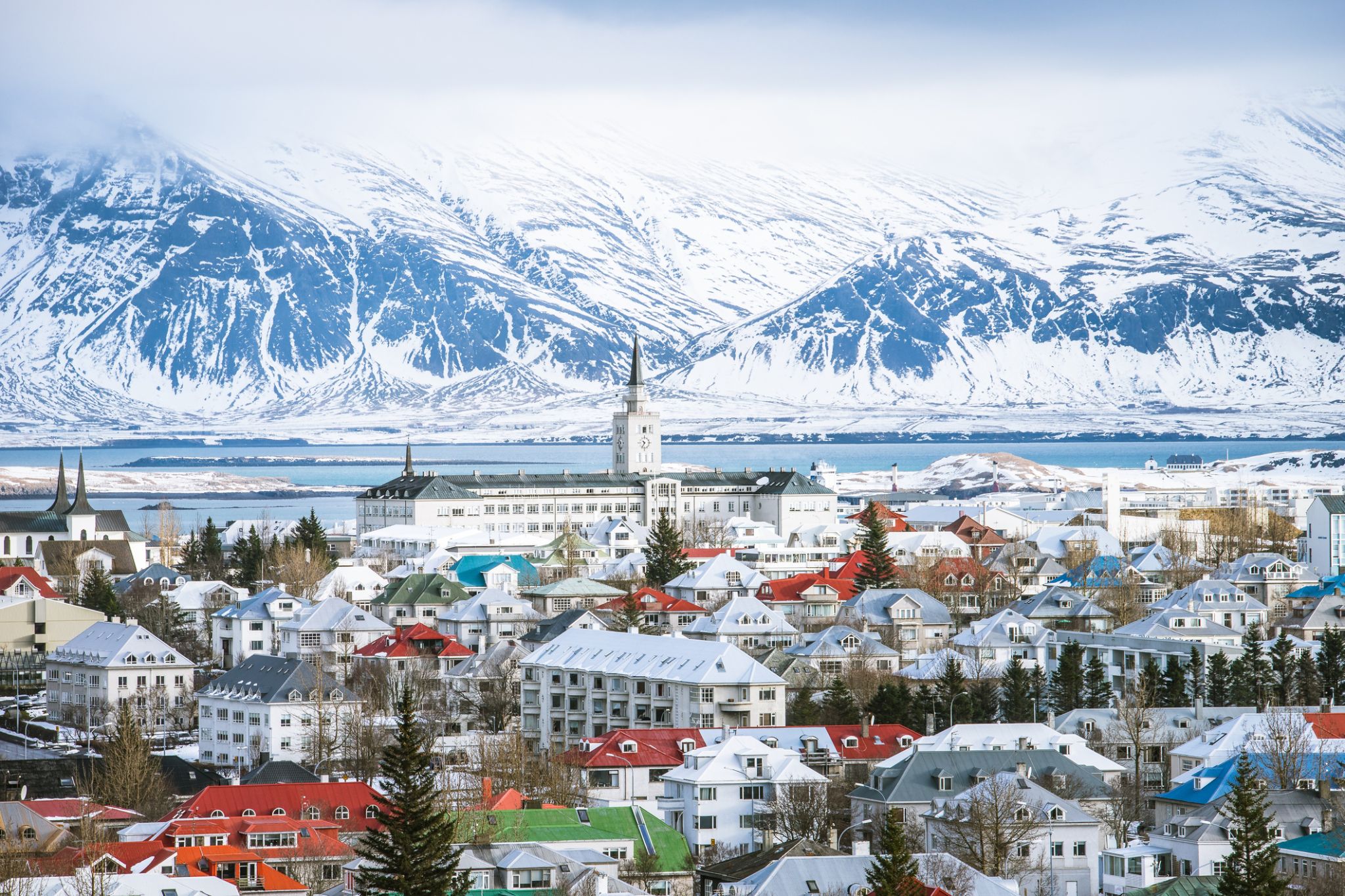
Reykjavík is the capital and largest city of Iceland. It is located in southwestern Iceland, on the southern shore of Faxa Bay. Its latitude is 64°08' N, making it the world's northernmost capital of a sovereign state. With a population of around 123,300 (and over 216,940 in the Capital Region), it is the heart of Iceland's cultural, economic and governmental activity, and is a popular tourist destination.
Reykjavík is believed to be the location of the first permanent settlement in Iceland, which, according to Ingólfr Arnarson, was established in AD 874. Until the 19th century, there was no urban development in the city location. The city was founded in 1786 as an official trading town and grew steadily over the following decades, as it transformed into a regional and later national centre of commerce, population, and governmental activities. It is among the cleanest, greenest, and safest cities in the world.
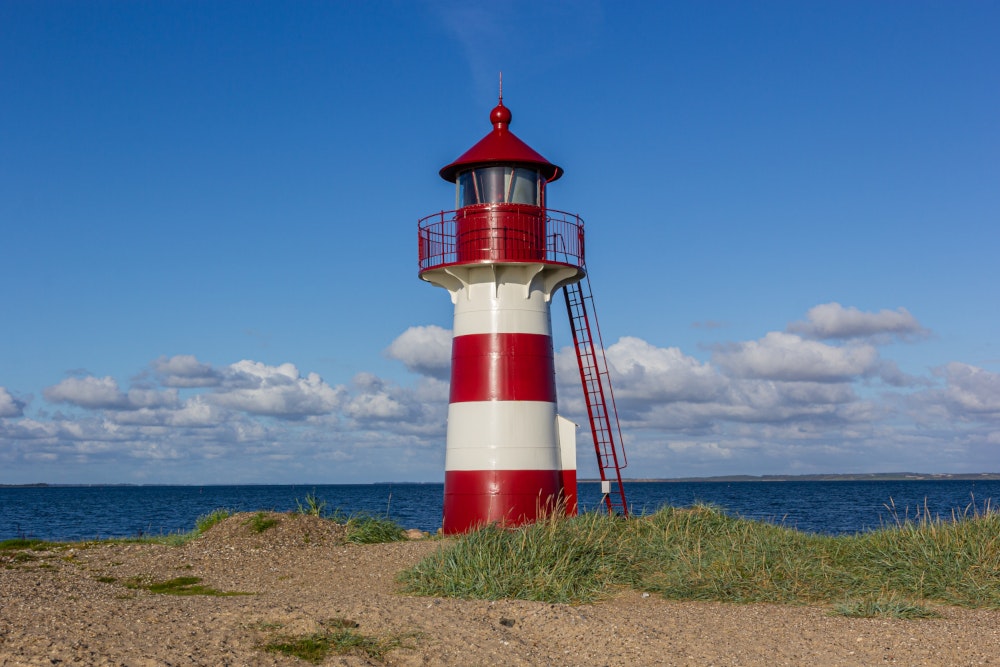
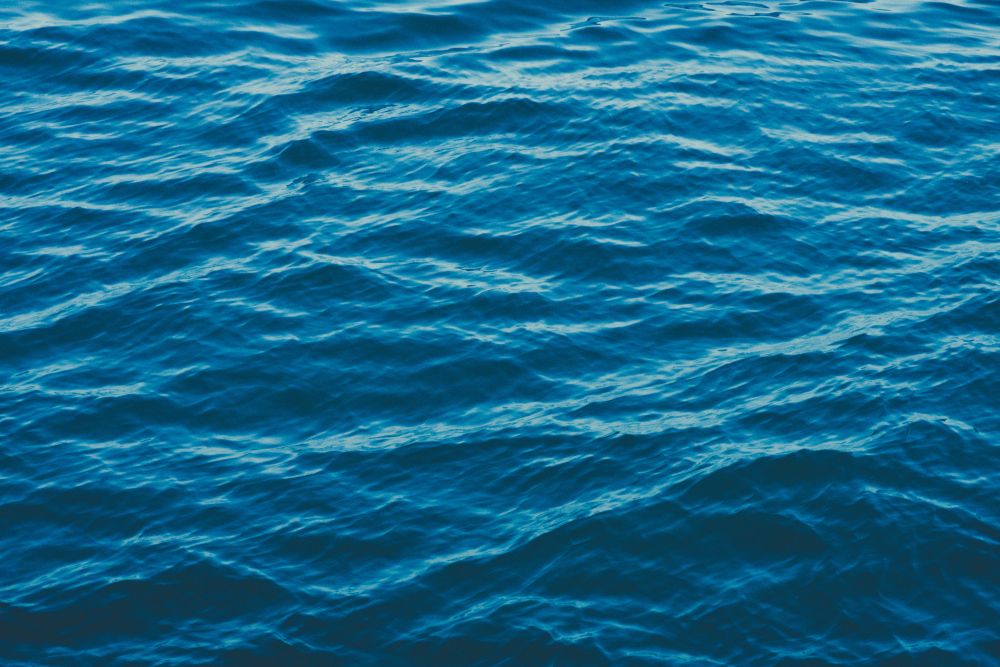
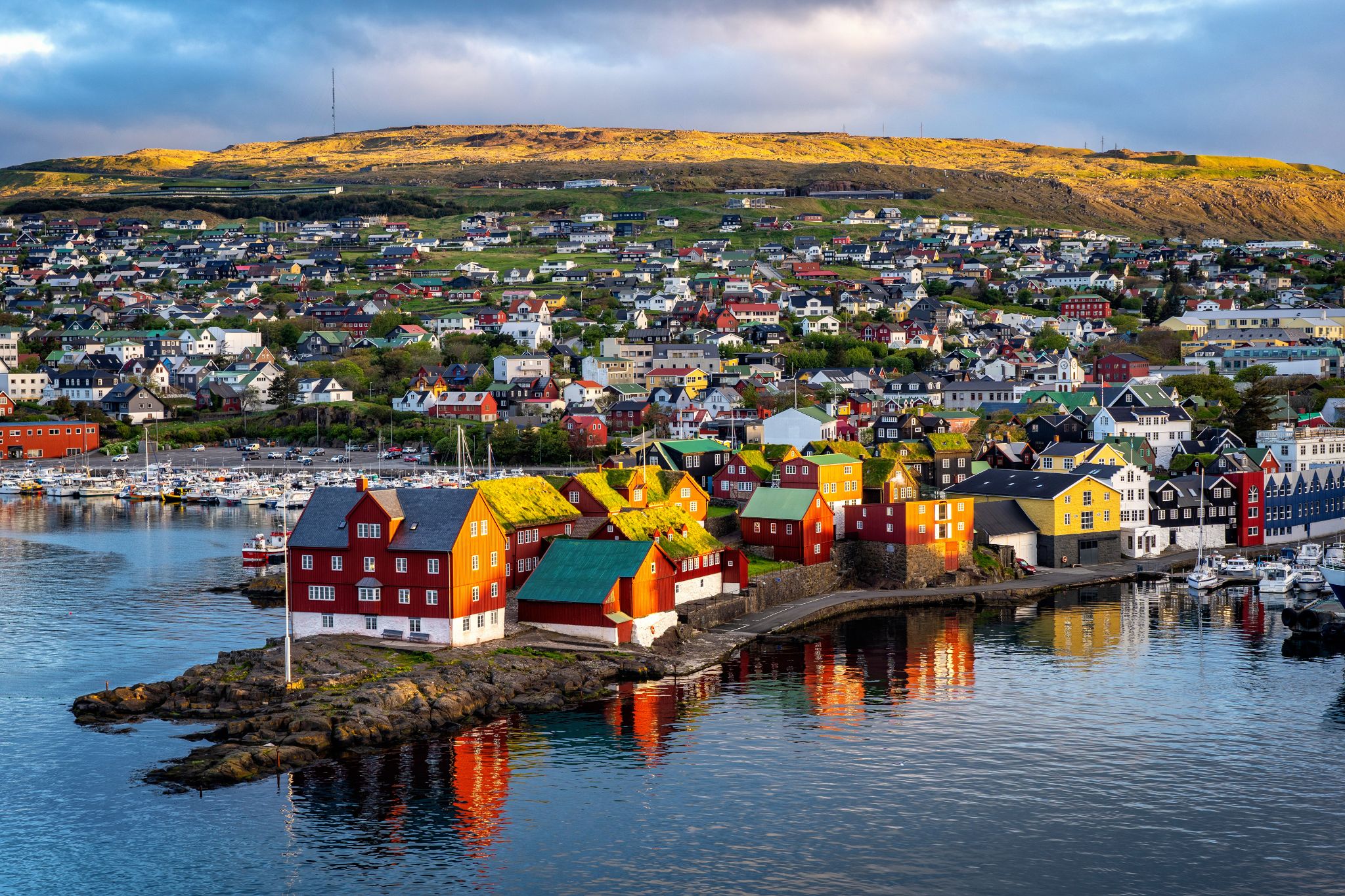
Tórshavn is the capital and largest town of the Faroe Islands. Tórshavn is in the southern part on the east coast of Streymoy. To the northwest of the city lies the 347-meter-high (1,138 ft) mountain Húsareyn, and to the southwest, the 350-meter-high (1,150 ft) Kirkjubøreyn. They are separated by the Sandá River. The town proper has a population of 13,089 (2017), and the greater urban area a population of 21,000.
The Norse established their parliament on the Tinganes peninsula in AD 850.[3] Tórshavn thus became the capital of the Faroe Islands and has remained so ever since. All through the Middle Ages the narrow peninsula jutting out into the sea made up the main part of Tórshavn. Early on, Tórshavn became the centre of the islands' trade monopoly, thereby being the only legal place for the islanders to sell and buy goods. In 1856, the trade monopoly was abolished and the islands were left open to free trade.



Էսկիֆյորդուրը փոքր, բայց գեղեցիկ ֆյորդ է, որը գտնվում է Արևելյան Իսլանդիայում և գրավում է զբոսաշրջիկներին իր բնական գեղեցկությամբ և խաղաղ մթնոլորտով: Բարձր լեռներով շրջապատված Էսկիֆյորդուրը իդեալական վայր է նրանց համար, ովքեր փնտրում են լռություն և հանգիստ հեռու տարածված զբոսաշրջային երթուղիներից: Այցելուները կարող են վայելել թարմ օդը և զարմանալի տեսարանները, որտեղ ֆյորդը միանում է Ատլանտյան օվկիանոսին: Իսլանդական ավանդական տները, որոնք ունեն խոտե ծածկոցներ, ավելացնում են այս խաղաղ քաղաքին իր առանձնահատկությունը:
Քաղաքը հայտնի է իր մշակութային ժառանգությամբ և պատմությամբ: Դարպասների մոտ կարելի է ծանոթանալ տեղացիների ավանդական կյանքի ոճին, իսկ մի քանի հետաքրքիր թանգարաններ, այդ թվում՝ ձկնորսության թանգարանը, պատմում են տարածաշրջանում ձկնորսության պատմությունը: Էսկիֆյորդուրը նաև հիանալի բազա է Արևելյան Իսլանդիայում հետազոտական ճանապարհորդություններ կատարելու համար, որտեղ հնարավորություններ կան քայլարշավների, ձկնորսության և վայրի բնության դիտարկման համար, այդ թվում՝ տեղական թռչունների և ծովային կաթնասունների:
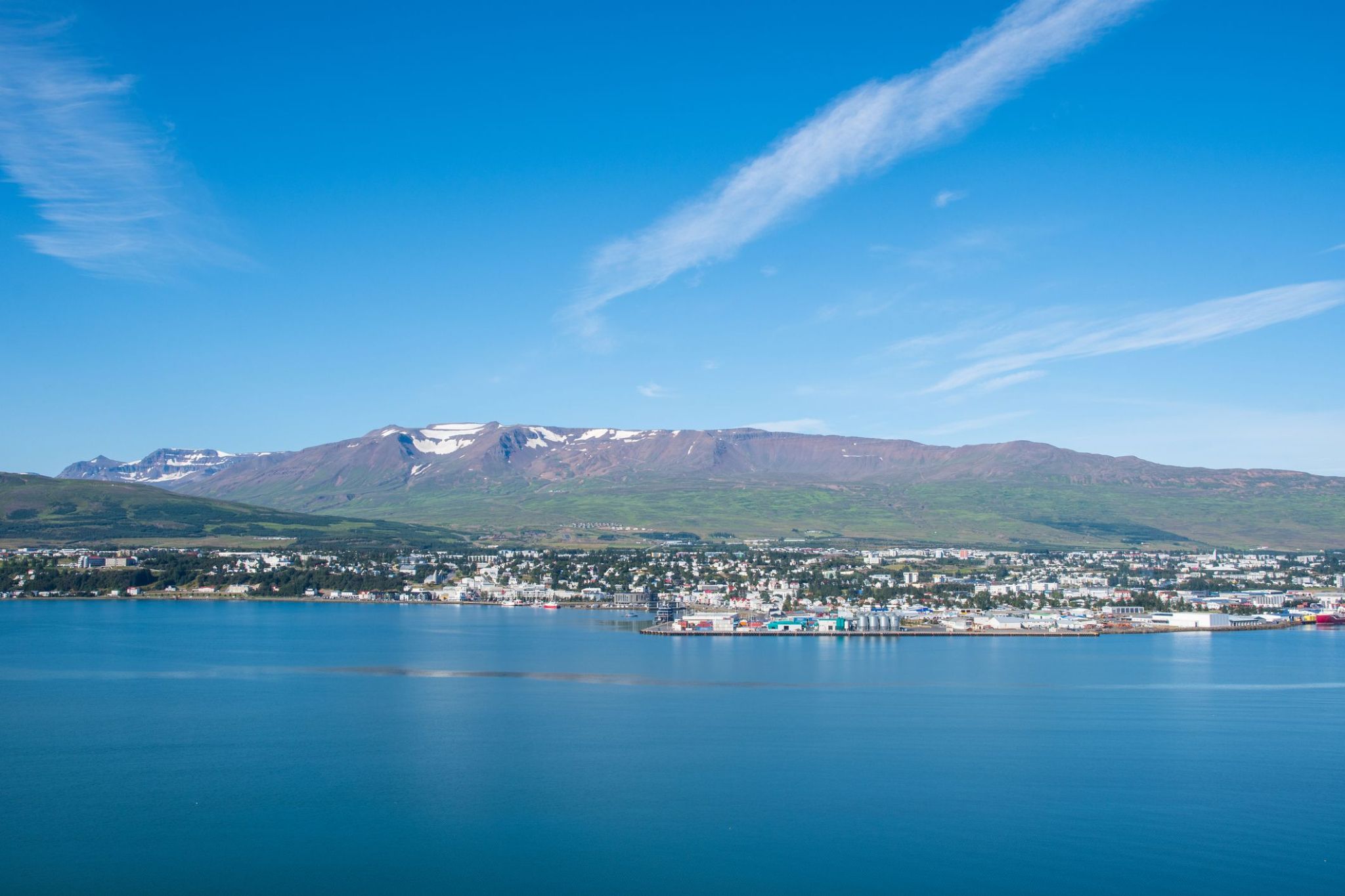
Akureyri is a town in northern Iceland. It is Iceland's Fifth largest municipality.
Nicknamed the Capital of North Iceland, Akureyri is an important port and fishing centre. The area where Akureyri is located was settled in the 9th century but did not receive a municipal charter until 1786. The town was the site of Alliedunits during World War II. Further growth occurred after the war as the Icelandic population increasingly moved to urban areas.
The area has a relatively mild climate because of geographical factors, and the town's ice-free harbour has played a significant role in its history.
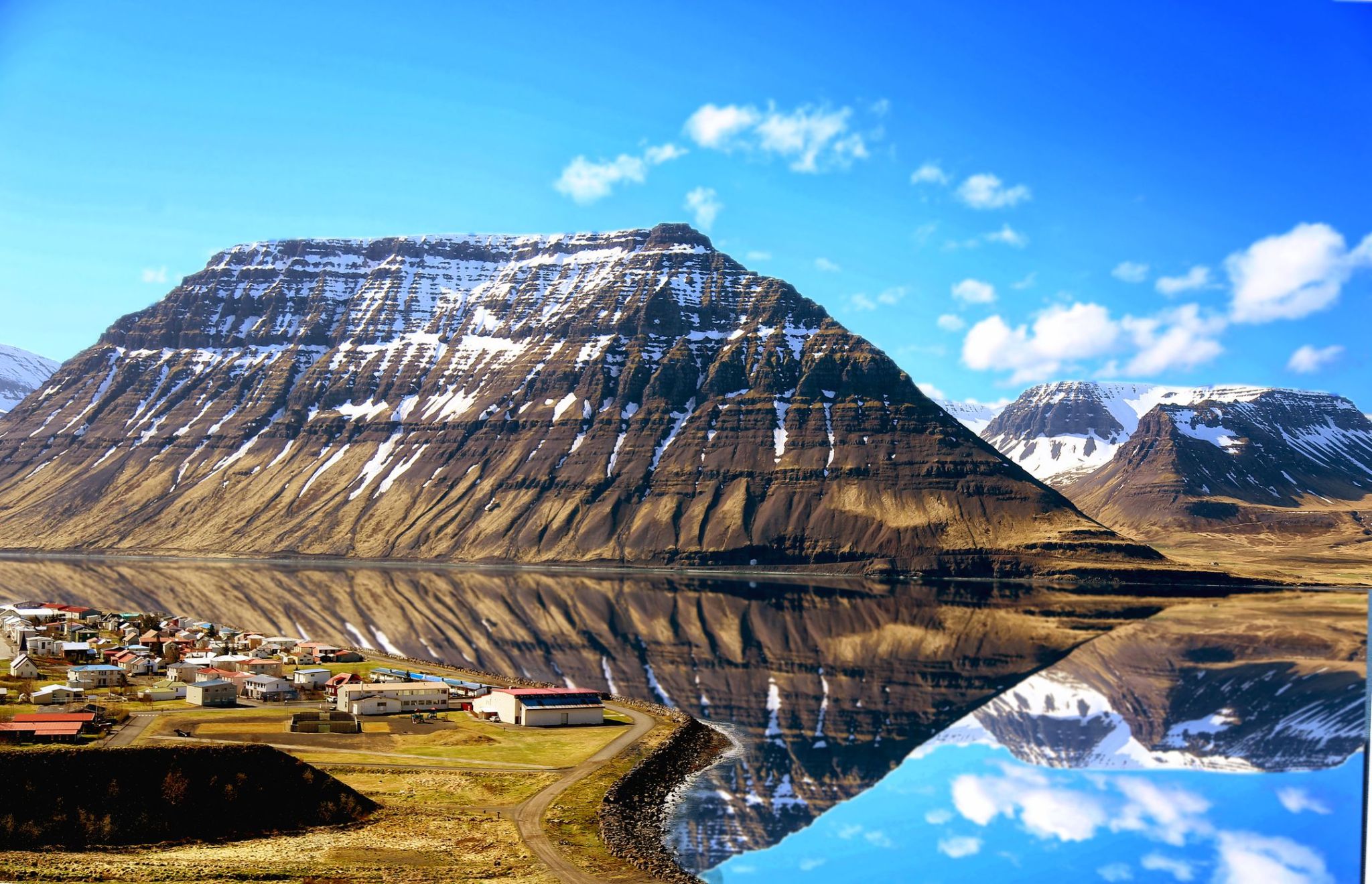
Isafjörður, meaning ice fjord or fjord of ice, ice in plural genitive) is a town in the northwest of Iceland.
The oldest part of Ísafjörður with the town centre is located on a spit of sand, or eyri, in Skutulsfjörður, a fjord which meets the waters of the larger fjord Ísafjarðardjúp. With a population of about 2,600, Ísafjörður is the largest settlement in the peninsula of Vestfirðir (Westfjords) and the administration centre of the Ísafjarðarbær municipality, which includes – besides Ísafjörður – the nearby villages of Hnífsdalur, Flateyri, Suðureyri, and Þingeyri.
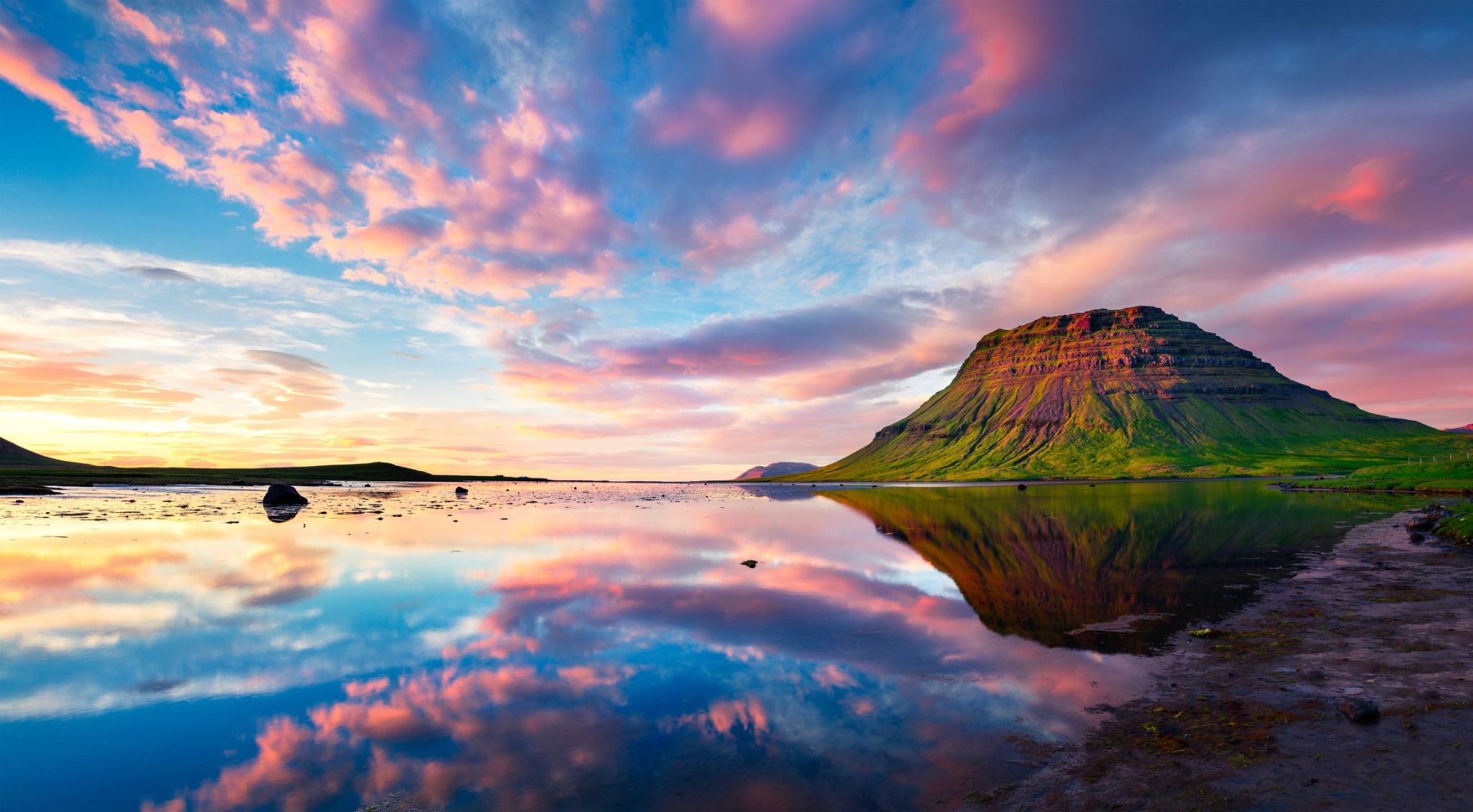
Գրունդարբյորդդուր՝ Իսլանդիայի արևմտյան ափին գտնվող գեղեցիկ քաղաք է, որը գտնվում է Քիրքյուֆել լեռան ստորոտում։ Այս փոքրիկ բնակավայրն իր հիասքանչ տեսարաններով գրավում է զբոսաշրջիկներին՝ բացահայտելով ֆյորդերի ու լեռնային լանդշաֆտների գեղեցկությունը, ինչպես նաև եզակի բնությունը, որին բնորոշ են բազմաթիվ ջրվեժներ ու գեոթերմալ աղբյուրներ։ Մ régionի գլխավոր տեսարժան վայրերից մեկն է Քիրքյուֆել լեռը, որը հայտնի է իր բնորոշ մերկության և լուսանկարիչների շրջանում ունեցած տարածմամբ։ Գրունդարբյորդդուրը գերազանց մեկնարկային կետ է ուսումնասիրելու մոտակա բնական վայրերը՝ Սկաֆտաֆել ազգային պարկը և Սկաֆտաթալ սառցադաշտը։
Ակտիվ հանգիստը սիրող զբոսաշրջիկները Գրունդարբյորդդուրում կարող են վայելել ձկնորսություն, ոտքով զբոսանքներ և թռչունների դիտում։ Քաղաքում կարելի է գտնել նաև հարմարավետ սրճարաններ ու ռեստորաններ, որոնք առաջարկում են թարմ ծովամթերք և ավանդական իսլանդական ճաշեր։ Բացի այդ, Գրունդարբյորդդուրն գտնվում է Իսլանդիայի հիմնական զբոսաշրջային ուղիներից մոտ՝ դարձնելով այն հարմարավետ կանգառ՝ երկրի հայտնի բնական հրաշքները ուսումնասիրելու ճանապարհին։

Reykjavík is the capital and largest city of Iceland. It is located in southwestern Iceland, on the southern shore of Faxa Bay. Its latitude is 64°08' N, making it the world's northernmost capital of a sovereign state. With a population of around 123,300 (and over 216,940 in the Capital Region), it is the heart of Iceland's cultural, economic and governmental activity, and is a popular tourist destination.
Reykjavík is believed to be the location of the first permanent settlement in Iceland, which, according to Ingólfr Arnarson, was established in AD 874. Until the 19th century, there was no urban development in the city location. The city was founded in 1786 as an official trading town and grew steadily over the following decades, as it transformed into a regional and later national centre of commerce, population, and governmental activities. It is among the cleanest, greenest, and safest cities in the world.

Reykjavík is the capital and largest city of Iceland. It is located in southwestern Iceland, on the southern shore of Faxa Bay. Its latitude is 64°08' N, making it the world's northernmost capital of a sovereign state. With a population of around 123,300 (and over 216,940 in the Capital Region), it is the heart of Iceland's cultural, economic and governmental activity, and is a popular tourist destination.
Reykjavík is believed to be the location of the first permanent settlement in Iceland, which, according to Ingólfr Arnarson, was established in AD 874. Until the 19th century, there was no urban development in the city location. The city was founded in 1786 as an official trading town and grew steadily over the following decades, as it transformed into a regional and later national centre of commerce, population, and governmental activities. It is among the cleanest, greenest, and safest cities in the world.

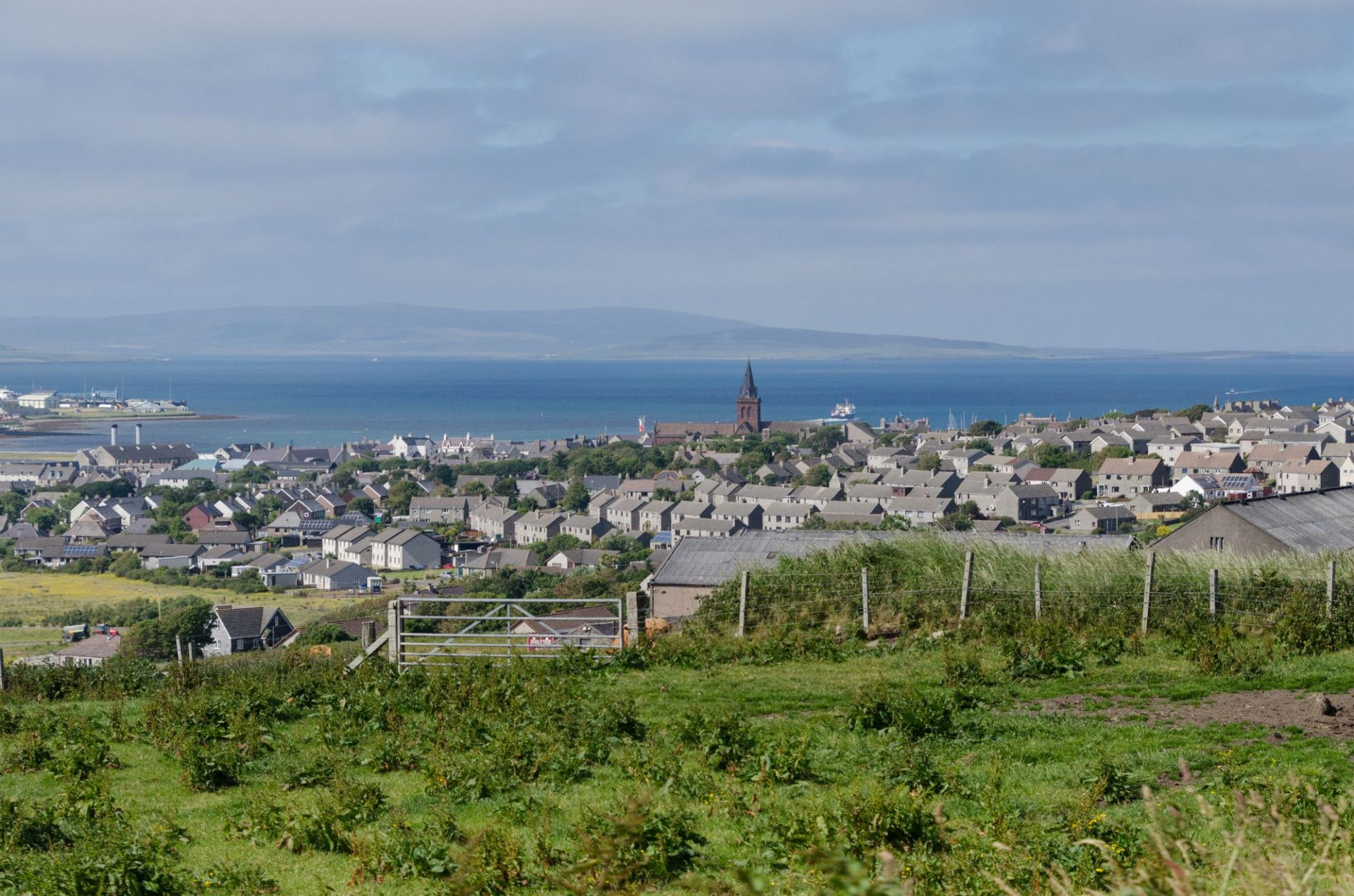
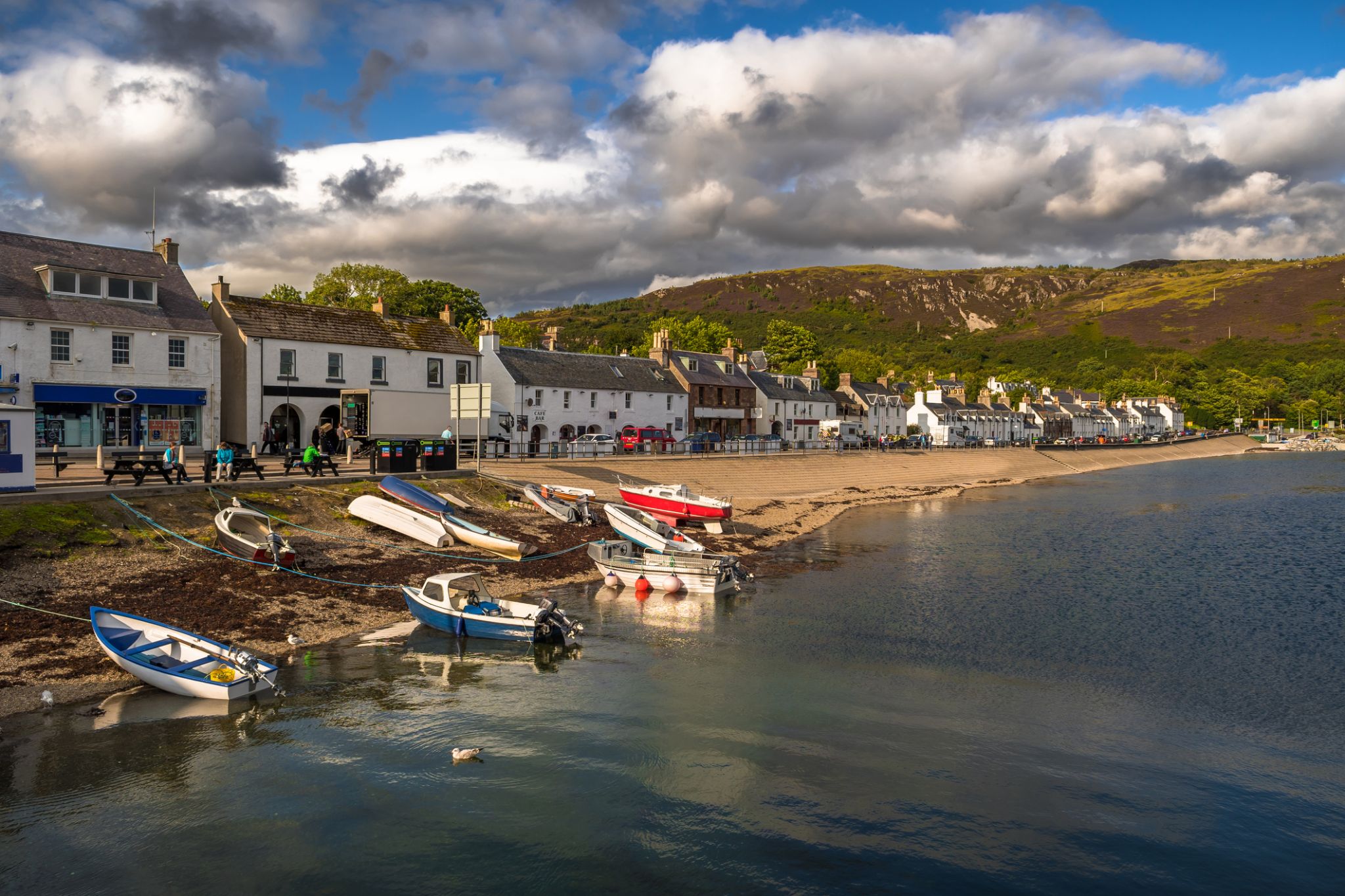
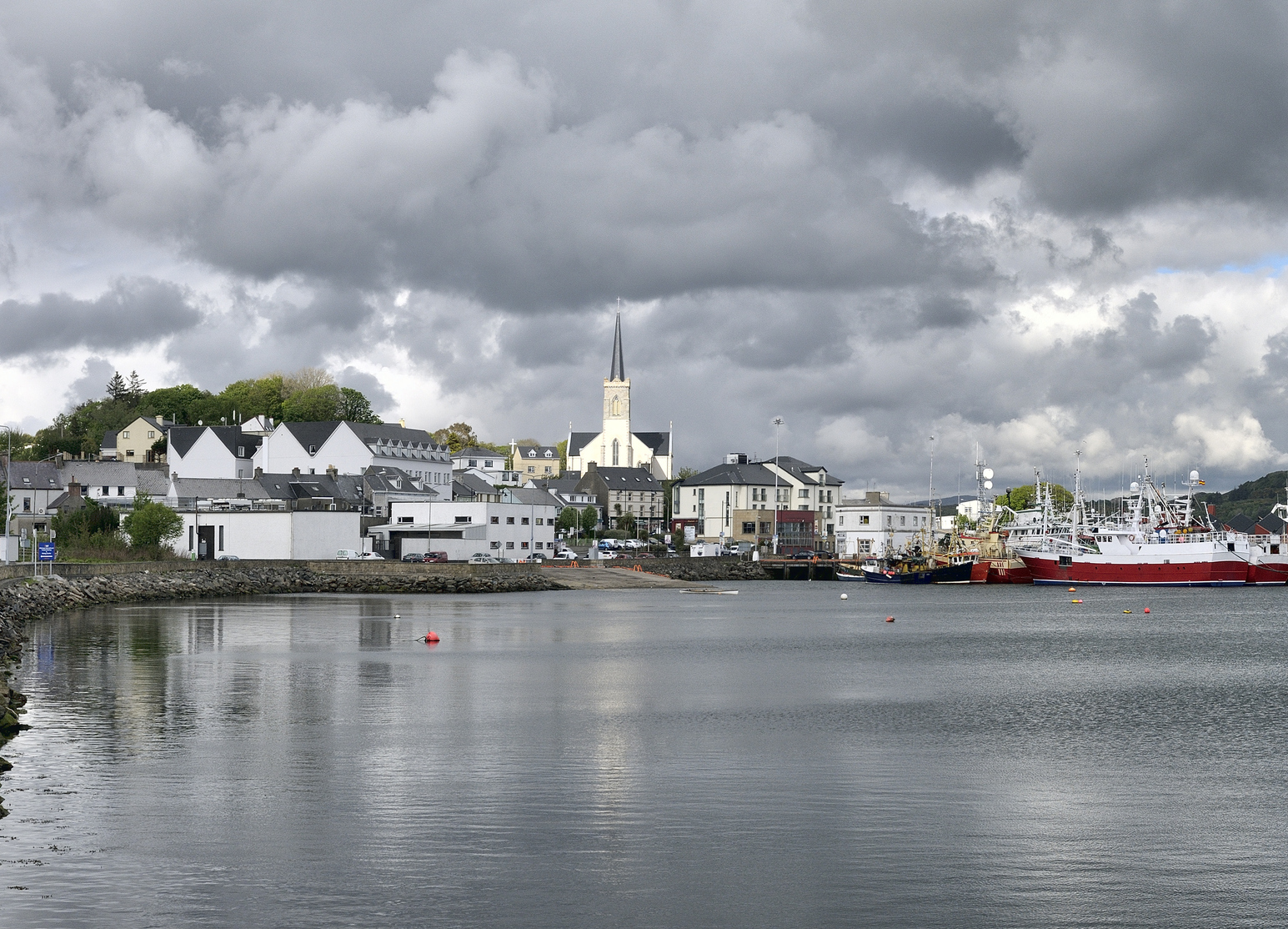
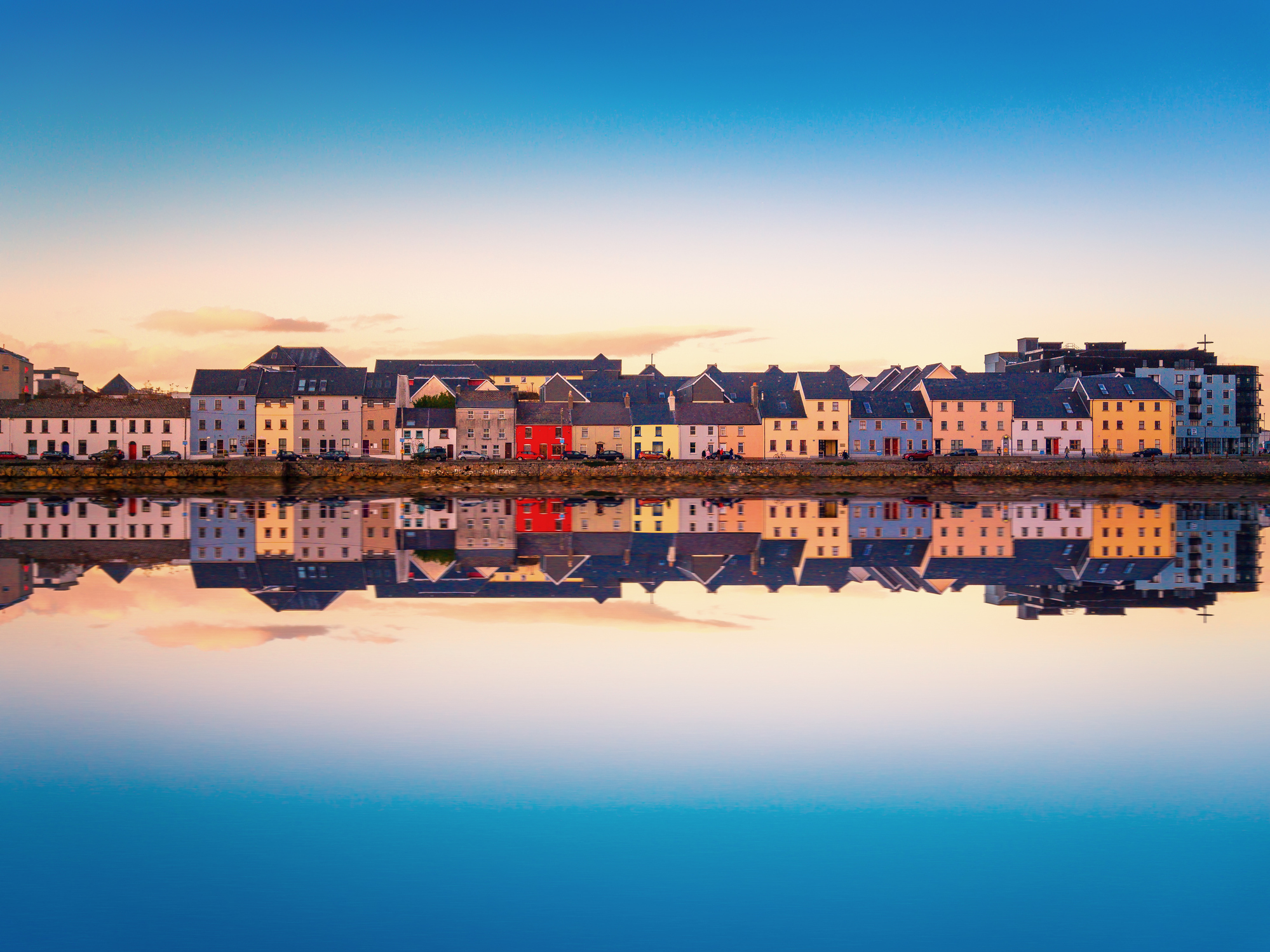
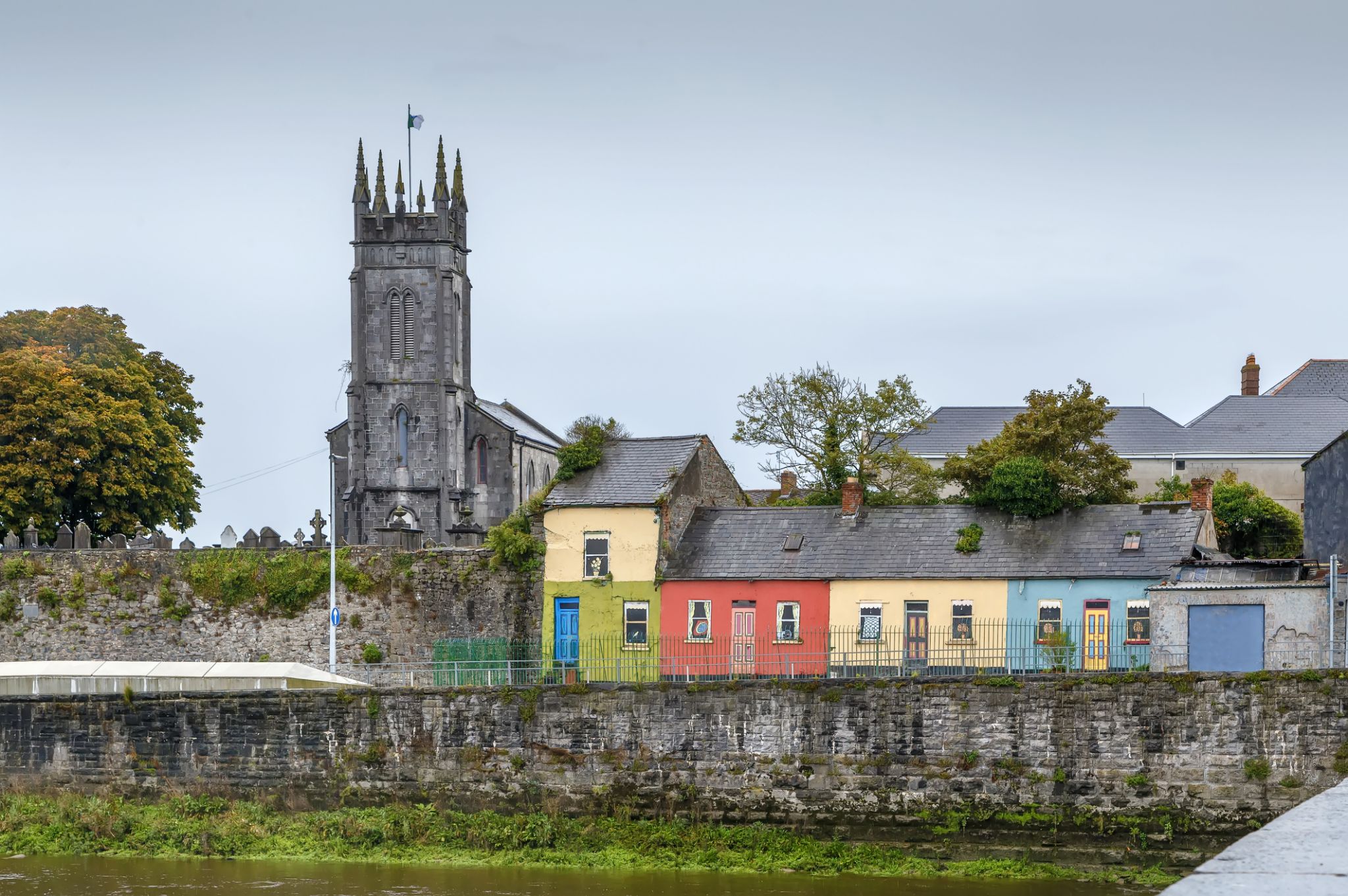
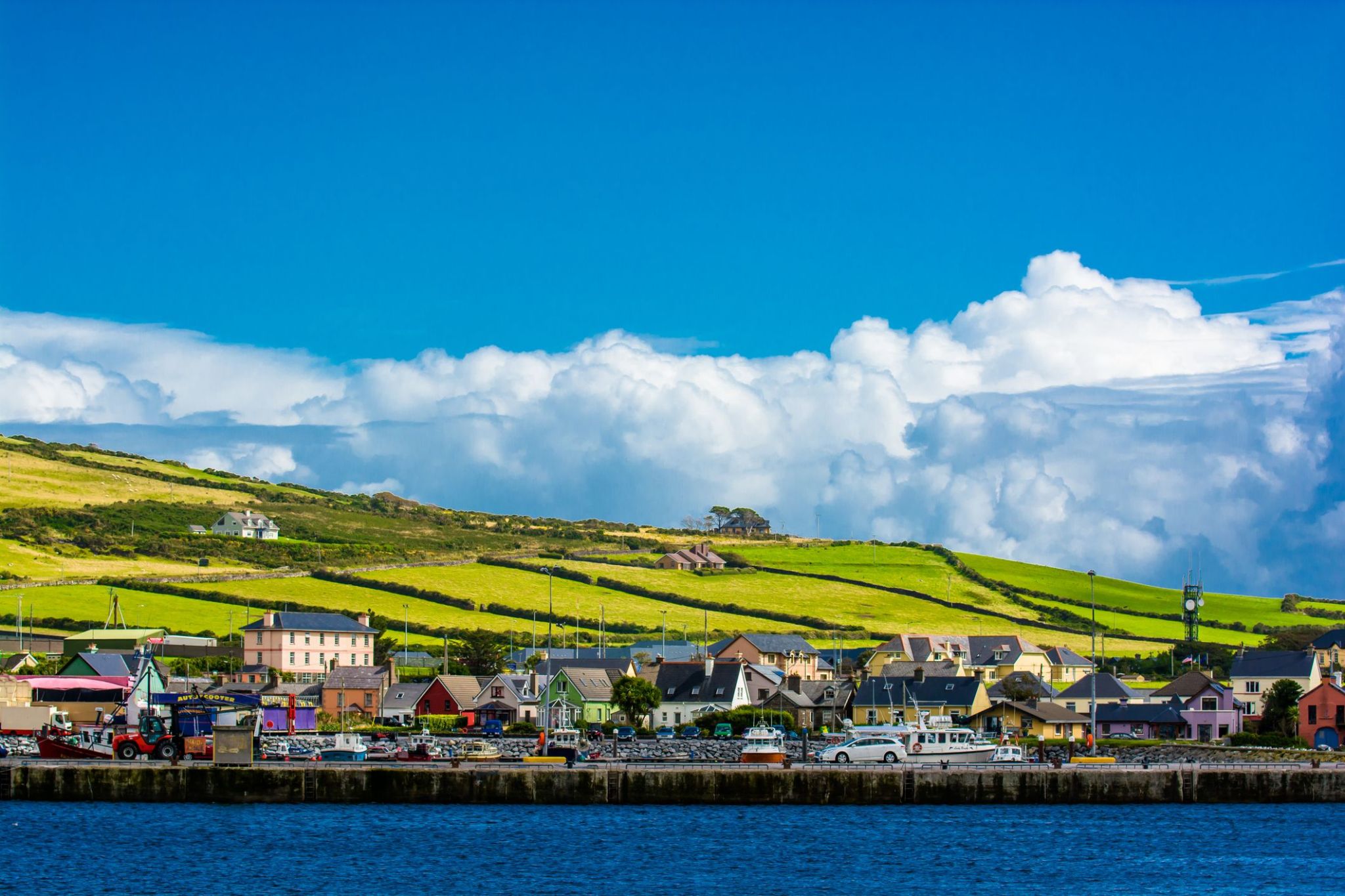

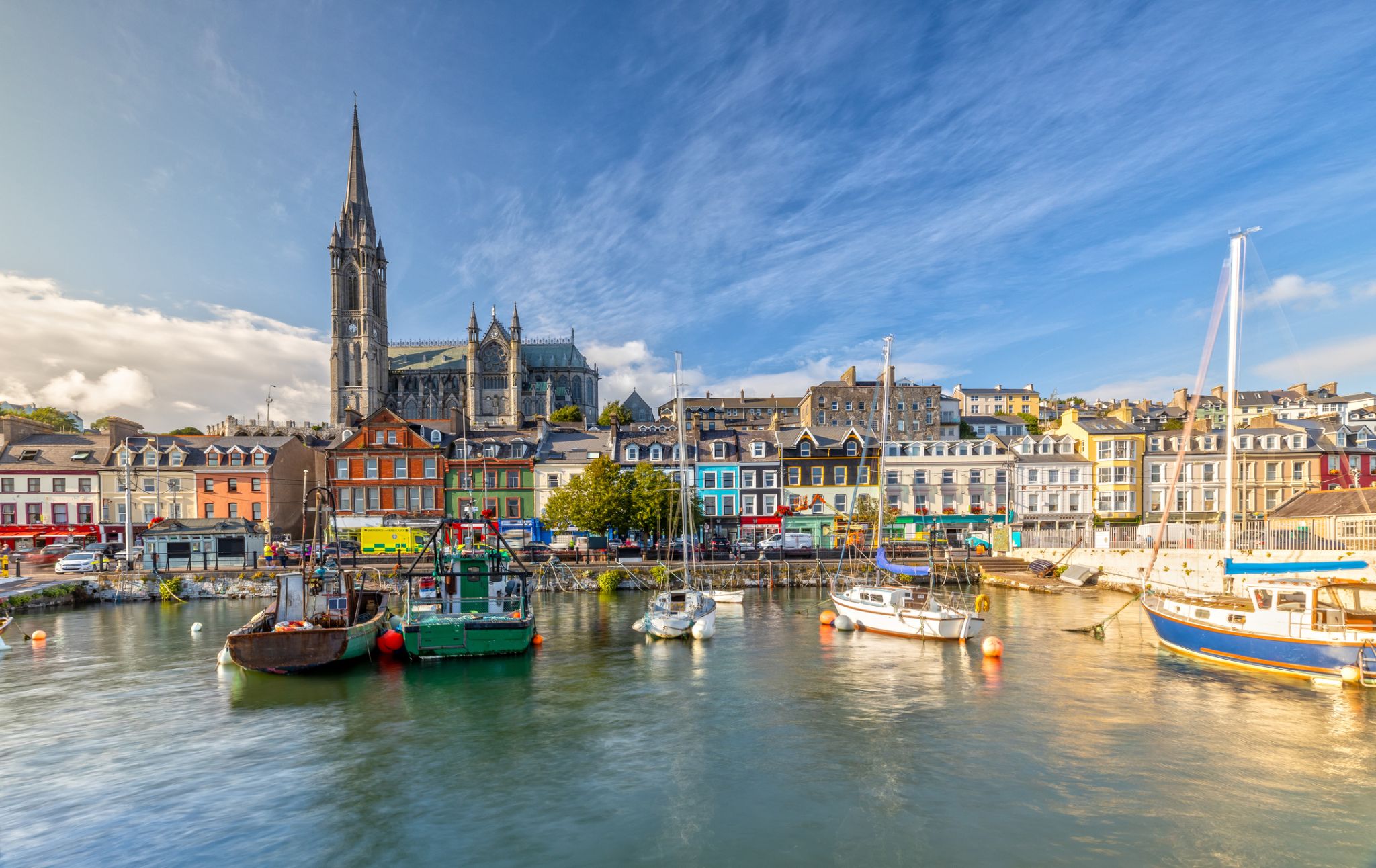
Cork is a city in south-west Ireland, in the province of Munster, which had a population of 125,657 in 2016.
The city is on the River Lee which splits into two channels at the western end and divides the city centre into islands. They reconverge at the eastern end where the quays and docks along the river banks lead outwards towards Lough Mahon and Cork Harbour, one of the largest natural harbours in the world.
Expanded by Viking invaders around 915, the city's charter was granted by Prince John, as Lord of Ireland, in 1185. Cork city was once fully walled, and the remnants of the old medieval town centre can be found around South and North Main streets.
The third largest city on the island of Ireland, the city's cognomen of "the rebel city" originates in its support for the Yorkist cause in the Wars of the Roses. Corkonians often refer to the city as "the real capital", a reference to its opposition to the Anglo-Irish Treaty in the Irish Civil War.

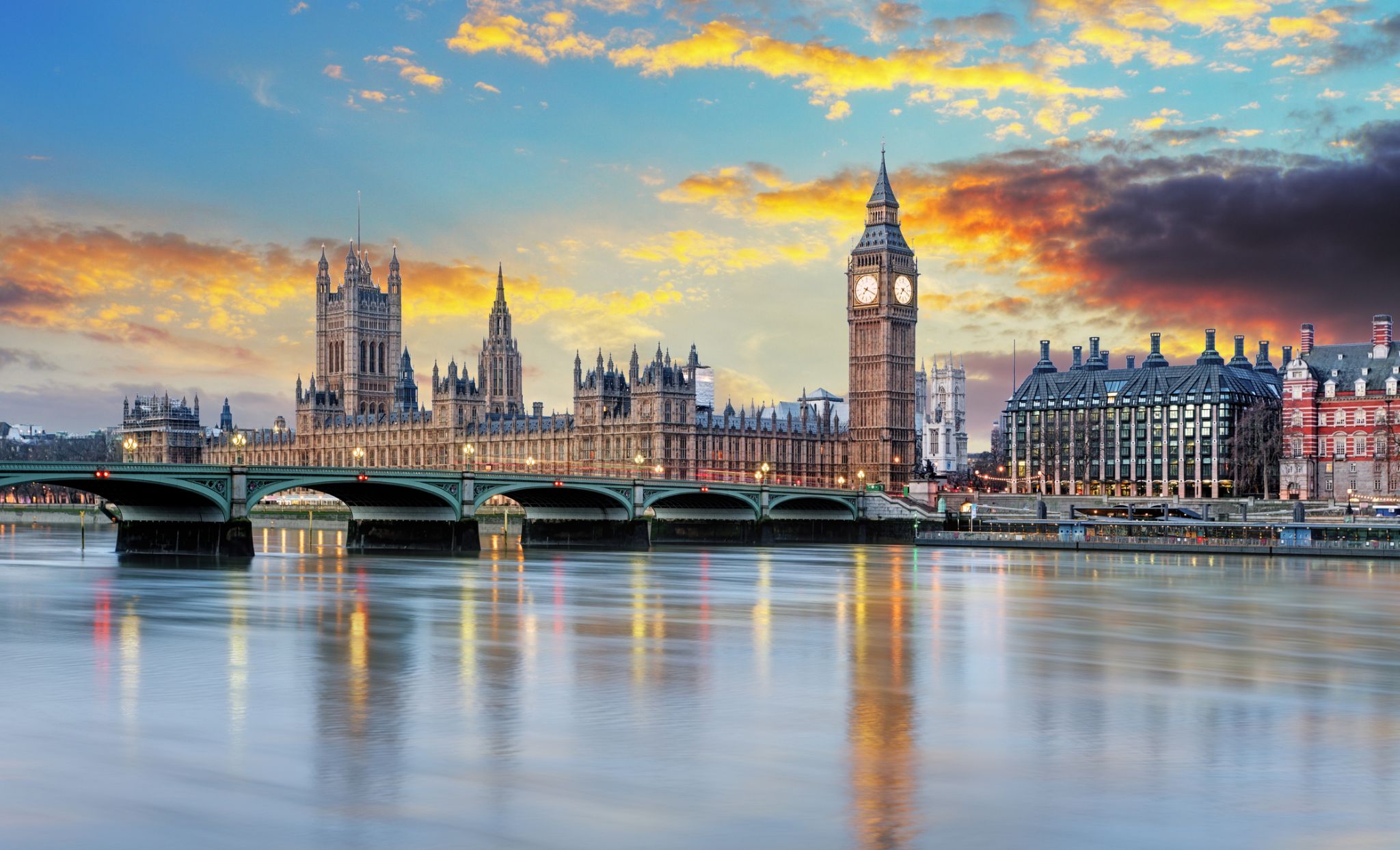



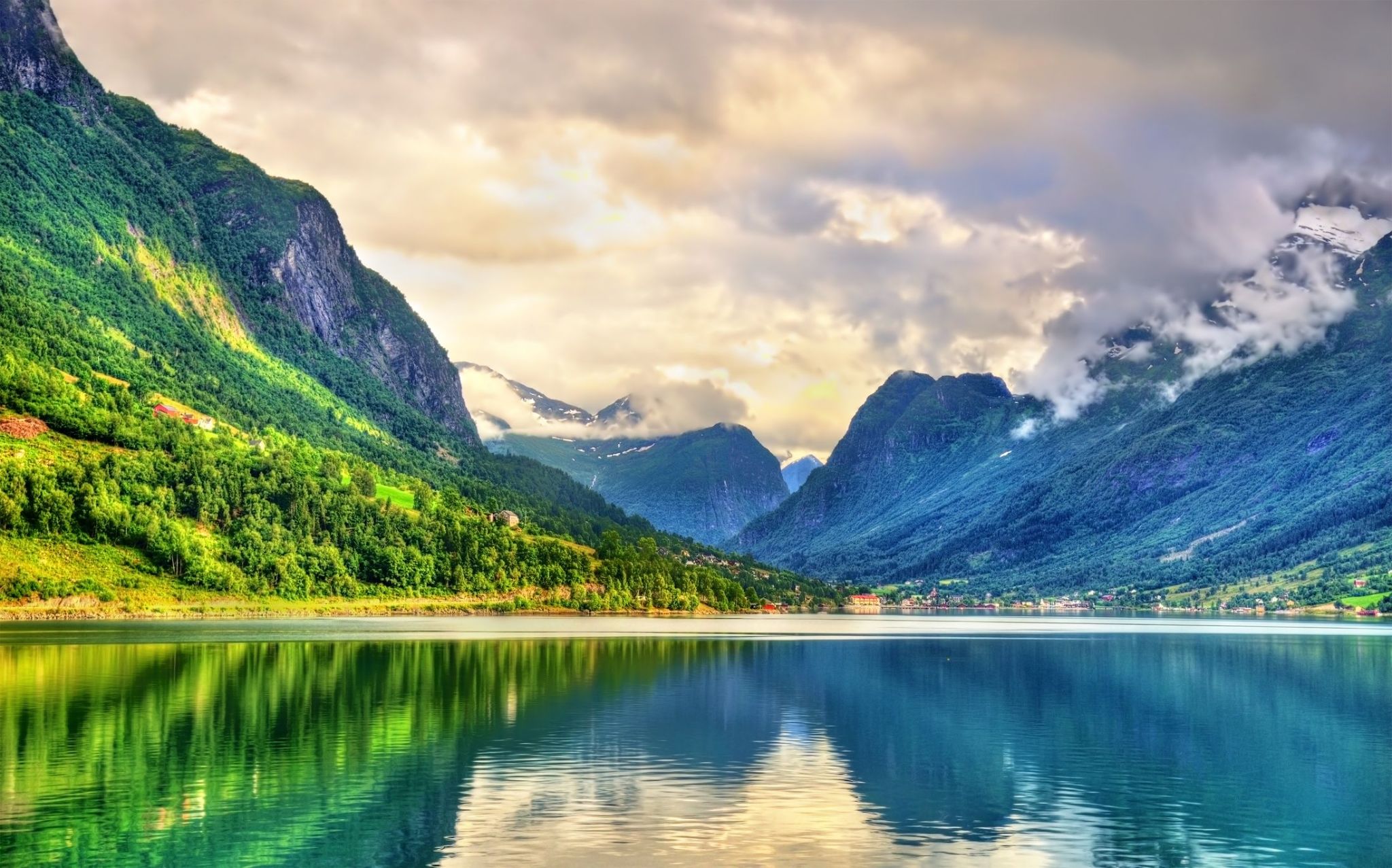
Նորվեգիայի արևմտյան ծովափի սրտում տեղակայված, Նորդֆյորդենը ճանապարհորդներին առաջարկում է հիացմունք առաջացնող համադրություն՝ վեհափառ ֆիորդներ, հանգիստ գյուղեր և հարուստ մշակութային ժառանգություն: Ատլանտյան այդ ֆիորդը ձգվում է ավելի քան 100 կիլոմետր, հայտնի է իր դրամատիկ ժայռերով և սառը, մաքուր ջրերով, որոնք հրավիրում են այցելուներին զննել նավակով, կայակով կամ գեղեցիկ քայլուղիներով: Բնության սիրահարները հիացական մթնոլորտին և գեղեցիկ տեսարաններին զարմացած կլինեն, իսկ պատմության սիրահարները կգտնեն հին ավանդական ագարակներ և դարավոր բնակավայրեր, որոնք տեղակայված են ֆիորդի ափերին:
Նորդֆյորդենի այցելուները կարող են վայելել բազմազան բացօթյա ակտիվություններ՝ սկսած մոտակա Յոստեդալսբրեեն սառցադաշտի քայլարշավներից մինչև հանգիստ վանդակներում ձկնորսություն: Տարածքը հայտնի է նաև իր գունեղ տեղական փառատոններով և ջերմ հյուրասիրությամբ, ինչը դարձնում է այն իդեալական տեղ ընտանիքների և միայնակ ճանապարհորդների համար: Անկախ նրանից՝ դուք փնտրում եք արկածներ, թե հանգստություն, Նորդֆյորդենը խոստանում է իսկական նորվեգական փորձառություն՝ լի բնական գեղեցկությամբ և մշակութային հարուստությամբ:
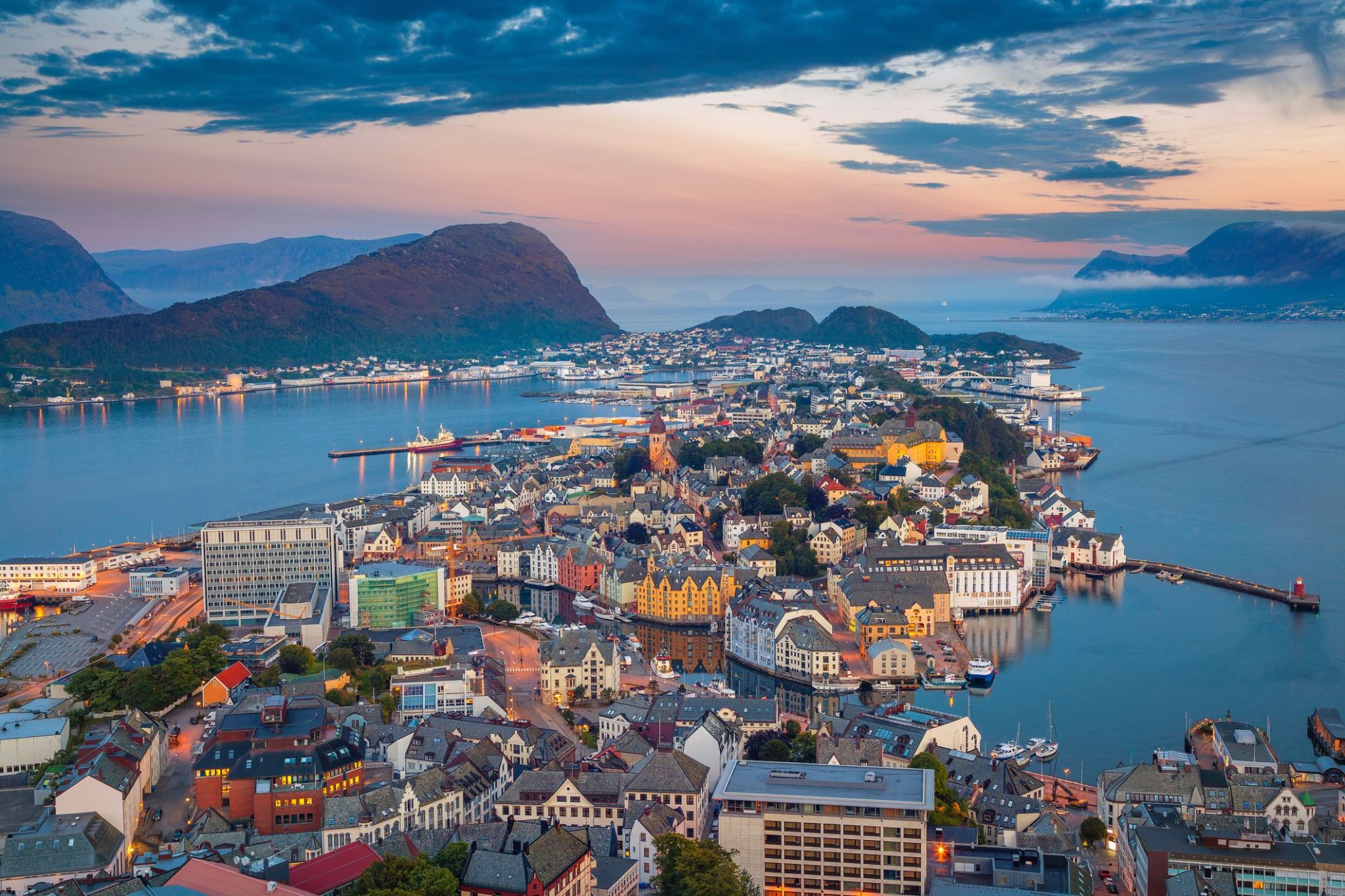
Położone między majestatycznymi fiordami a otwartym morzem, Ålesund zachwyca odwiedzających swoim wyjątkowym połączeniem naturalnego piękna i charakterystycznej architektury. Znane ze swojego imponującego stylu secesyjnego, odbudowanego po niszczącym pożarze w 1904 roku, miasto oferuje urokliwą atmosferę, gdzie kolorowe budynki ciągną się wzdłuż nabrzeża, tworząc malowniczy krajobraz niepodobny do żadnego innego w Norwegii.
Miłośnicy przygód i kultury znajdą w Ålesund wiele atrakcji. Od wspinaczki na punkt widokowy na wzgórzu Aksla z panoramicznym widokiem na archipelag, po zwiedzanie lokalnych muzeów i świeżych targów rybnych – to nadmorskie miasto zaprasza podróżnych do zanurzenia się w morskie dziedzictwo i zapierające dech w piersiach krajobrazy Norwegii. Niezależnie od tego, czy rejsujesz po pobliskich fiordach, czy spacerujesz wąskimi uliczkami, każda chwila w Ålesund obiecuje niezapomniane odkrycia.

Położone między majestatycznymi fiordami a otwartym morzem, Ålesund zachwyca odwiedzających swoim wyjątkowym połączeniem naturalnego piękna i charakterystycznej architektury. Znane ze swojego imponującego stylu secesyjnego, odbudowanego po niszczącym pożarze w 1904 roku, miasto oferuje urokliwą atmosferę, gdzie kolorowe budynki ciągną się wzdłuż nabrzeża, tworząc malowniczy krajobraz niepodobny do żadnego innego w Norwegii.
Miłośnicy przygód i kultury znajdą w Ålesund wiele atrakcji. Od wspinaczki na punkt widokowy na wzgórzu Aksla z panoramicznym widokiem na archipelag, po zwiedzanie lokalnych muzeów i świeżych targów rybnych – to nadmorskie miasto zaprasza podróżnych do zanurzenia się w morskie dziedzictwo i zapierające dech w piersiach krajobrazy Norwegii. Niezależnie od tego, czy rejsujesz po pobliskich fiordach, czy spacerujesz wąskimi uliczkami, każda chwila w Ålesund obiecuje niezapomniane odkrycia.
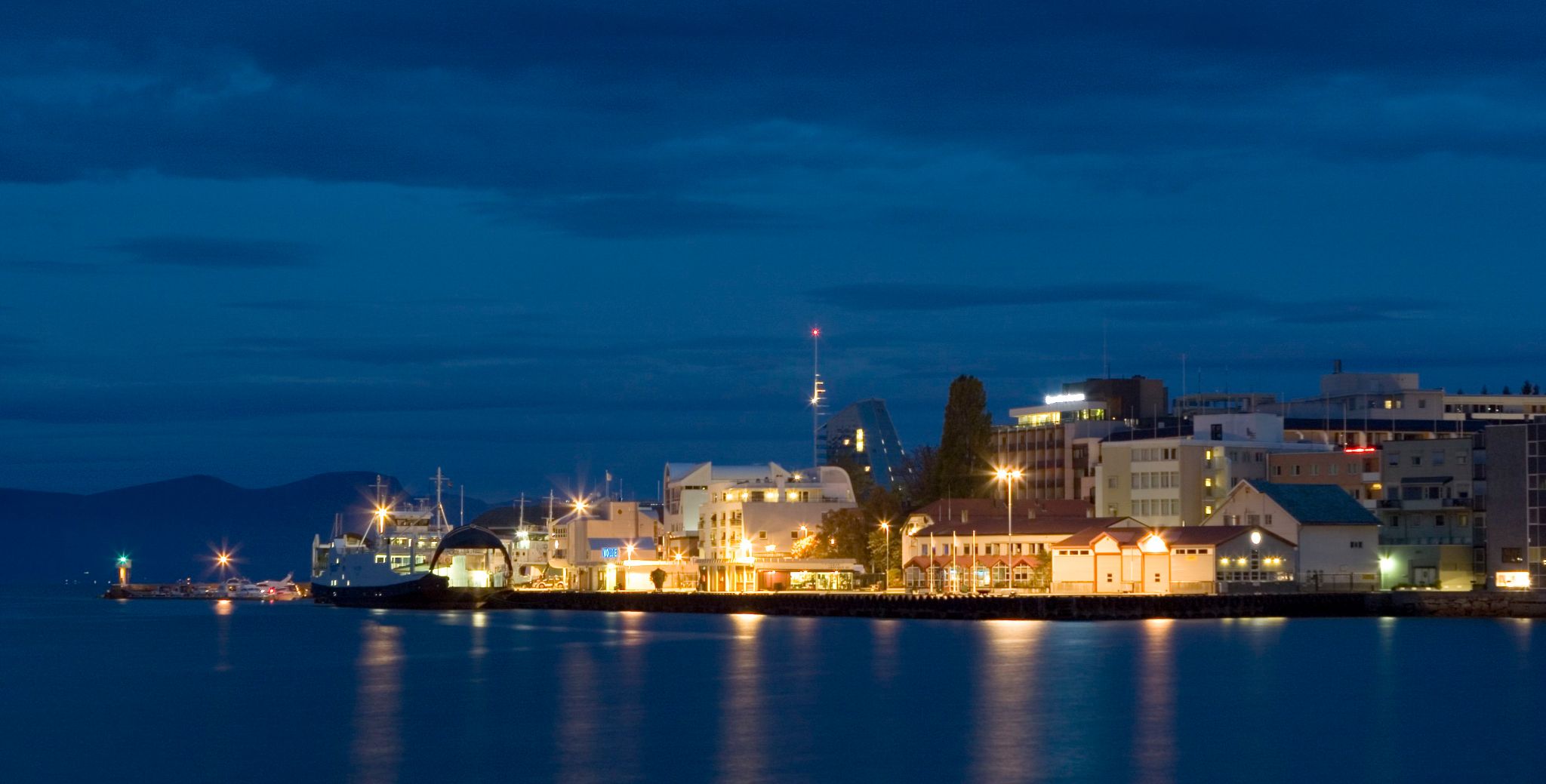
Մոլդե՝ Նորվեգիայի արևմտյան ափին գտնվող գեղեցիկ քաղաք է, որը գտնվում է Ռոմսդալֆյորդի ափին: Մոլդեն հայտնի է իր գեղեցիկ լանդշաֆտներով և հաճախ անվանում են «Վարդերի քաղաք», քանի որ բազմաթիվ վարդաբուսական այգիներ են զարդարում քաղաքը: Մոլդեն շրջապատված է լեռնագագաթներով և կանաչ բլուրներով, ինչը ստեղծում է լեռնային և ծովային տեսարանների յուրահատուկ համադրություն: Սահմանված հայտնի տեսարաններից մեկը բացվում է Վեստերհորնի լեռից, որտեղ կարելի է տեսնել 222 լեռնագագաթների պանորամա, որոնք ձևավորում են ազդեցիկ լանդշաֆտ:
Մոլդեն նաև հայտնի է իր մշակութային կյանքով և պատմությամբ: Քաղաքում անցկացվում է միջազգային ջազի փառատոն, որը բերում է երաժիշտներին և այցելուներին ամբողջ աշխարհից: Քաղաքը զբոսաշրջիկներին առաջարկում է բազմաթիվ ակտիվ հանգստի հնարավորություններ, ինչպես քայլարշավներ գեղեցիկ ուղիներով, ձկնորսություն և ֆյորդներով նավարկություն: Պատմական հուշարձանները, ինչպես Մոլդե եկեղեցին, ինչպես նաև մոտությունը այնպիսի բնական տեսարժան վայրերին, ինչպես Ատլանտյան ճանապարհը, դարձնում են Մոլդեն կատարյալ վայր նրանց համար, ովքեր ցանկանում են համատեղել բնության մեջ հանգիստը մշակութային և պատմական ուսումնասիրությունների հետ:
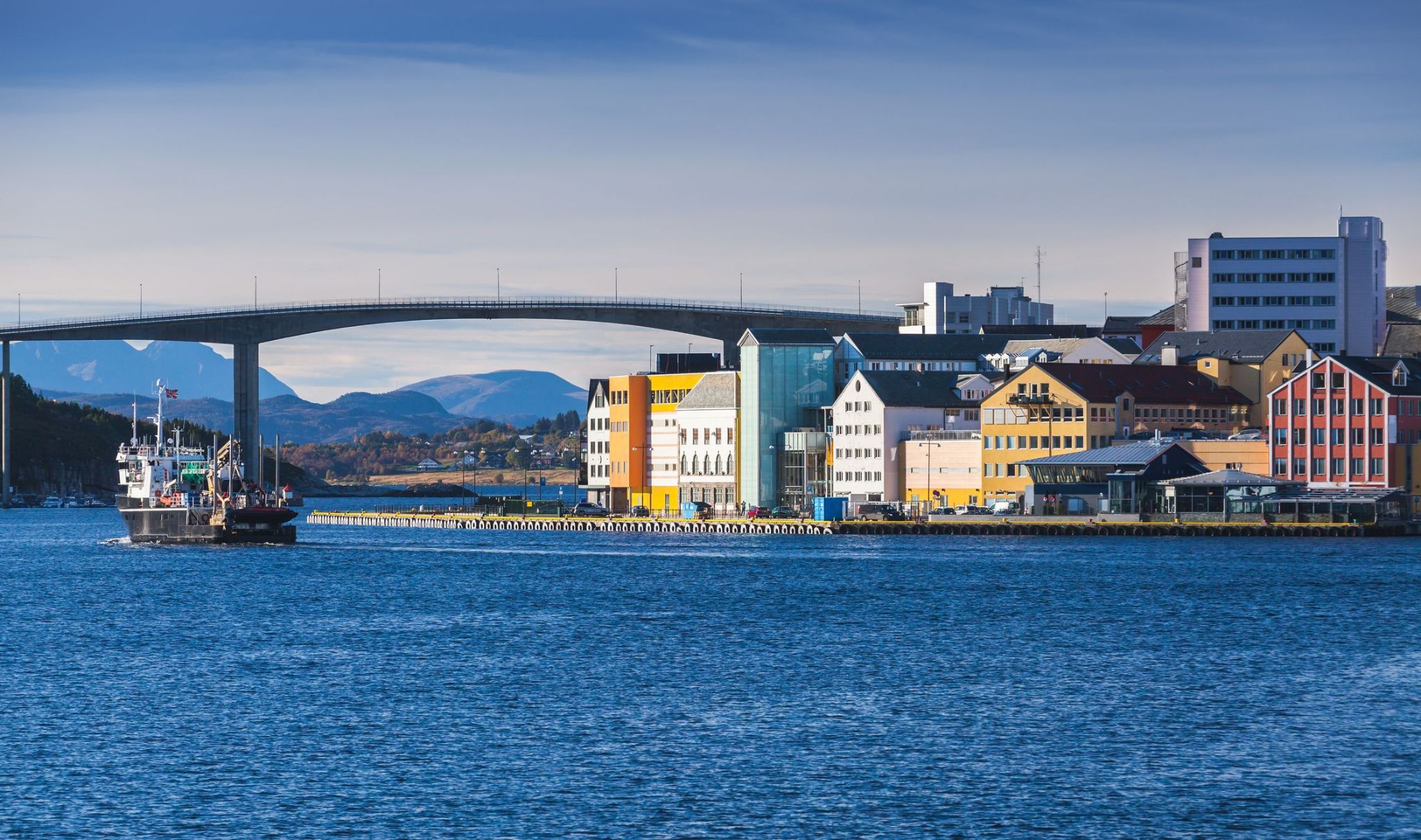
Նորվեգիայի ամենահարավային ափը հրավիրում է ձեզ այցելելու հրաշալի Կրիստիանսանդ քաղաքը։ Այս հիասքանչ քաղաքը երեք կողմերից շրջապատված է ծովով։ Սա երկրի հինգերորդ ամենամեծ քաղաքն է, և, չնայած նրա կենտրոնը զբաղեցնում է ընդամենը 1 կմ² տարածք, Կրիստիանսանդ ունի շատ բան առաջարկելու իր հյուրերին։ Խոսքը միայն չափազանց մաքուր նորվեգական օդի մասին չէ, այլ նաև բազմաթիվ հետաքրքիր տեսարժան վայրերի մասին։
Դրանց թվում է Նորվեգիայի ամենամեծ կենդանաբանական այգին, որտեղ բնակվում է 80 տեսակի կենդանի։ Այցելությունը այստեղ կուրախացնի և երեխաներին, և մեծերին։ Կարող եք նստել կարուսելների վրա, անկեղծ ծիծաղել կրկեսում, ինչպես նաև ամբողջ ընտանիքով գնալ ծովային զբոսանքի կամ խաղահրապարակում անցկացնել ժամանակը։
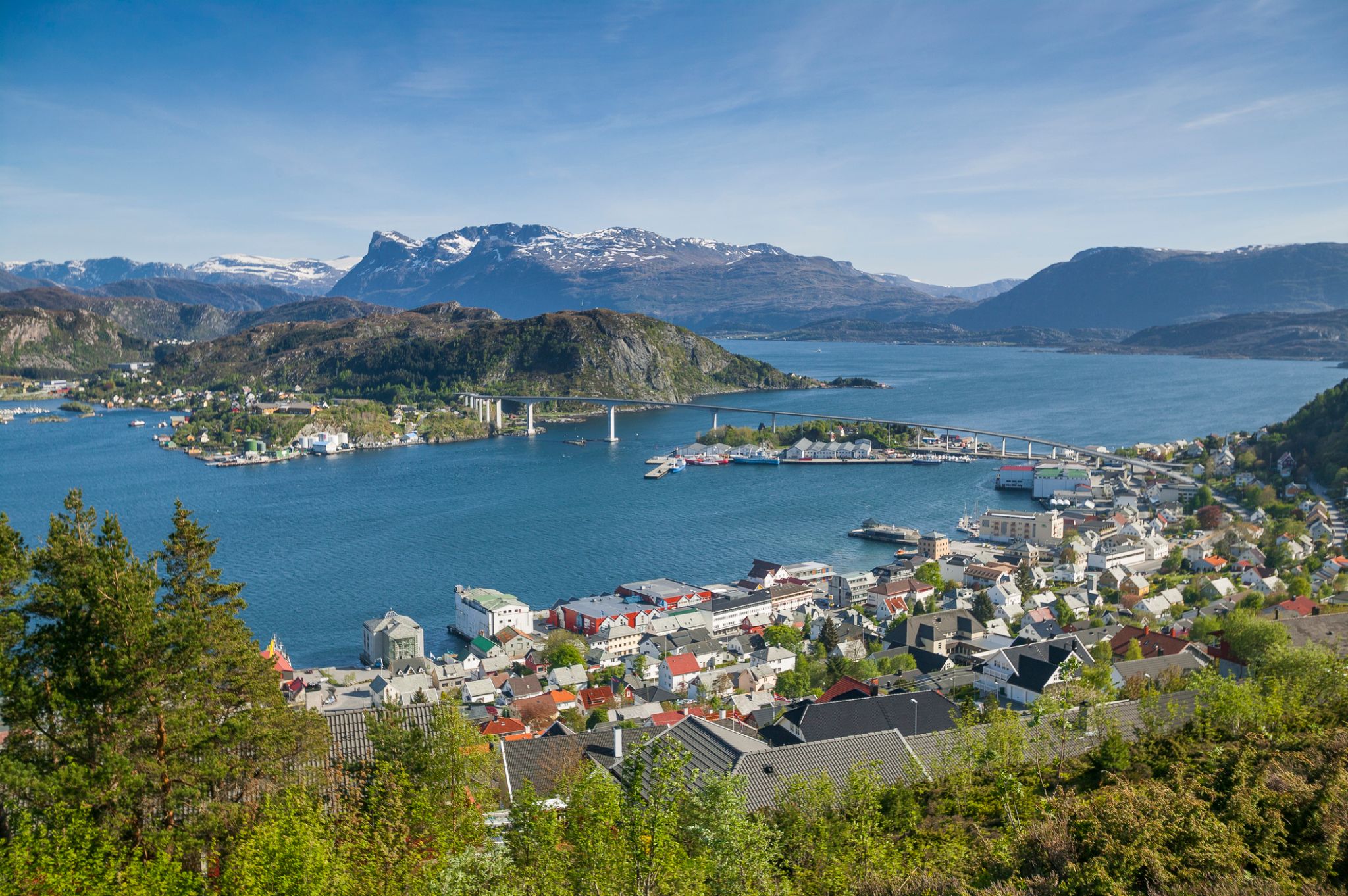
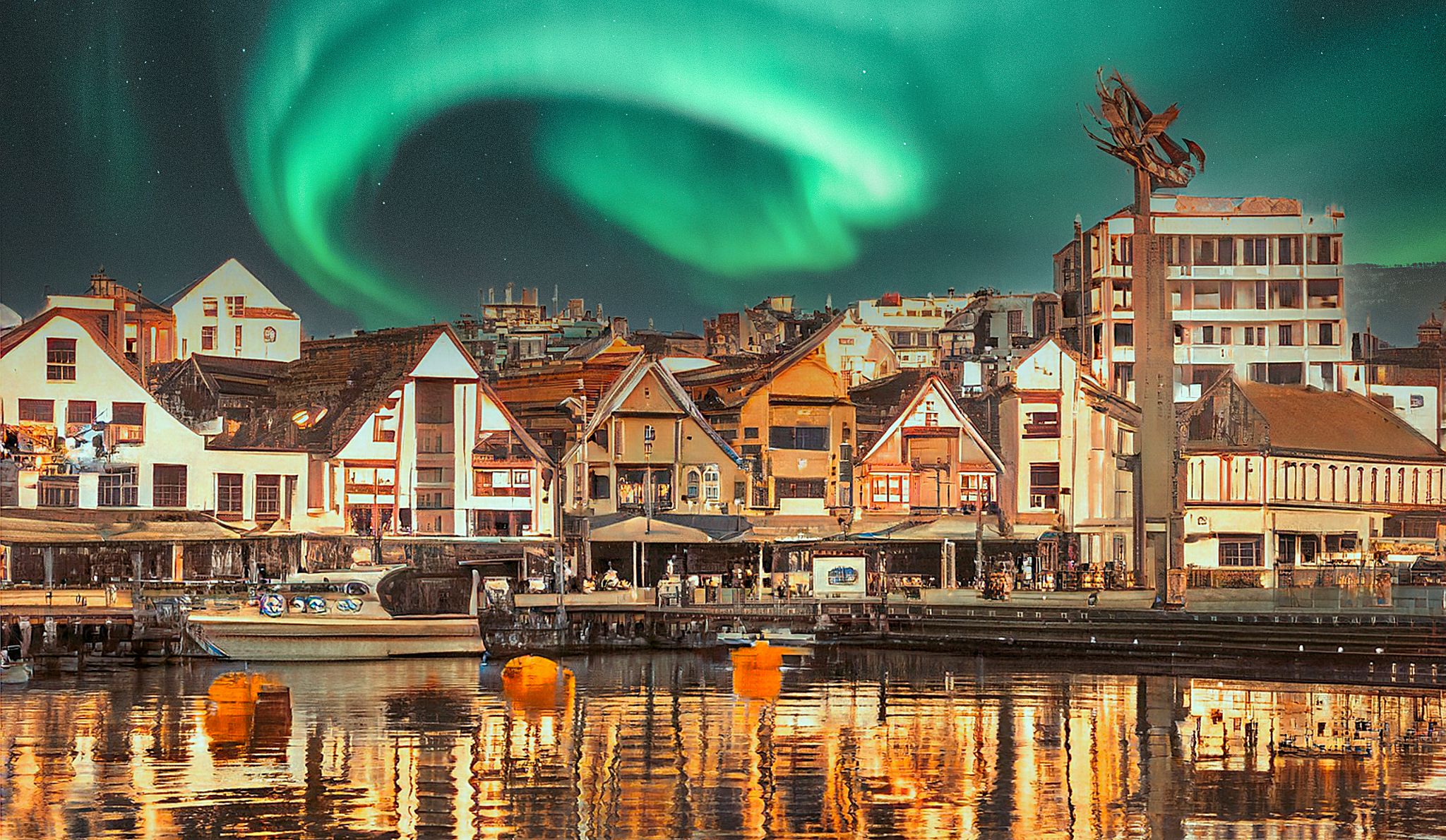
Stavanger is a city and municipality in Norway. It is the third largest city and metropolitan area in Norway (through conurbation with neighbouring Sandnes) and the administrative centre of Rogaland county. The municipality is the fourth most populous in Norway. Located on the Stavanger Peninsula in Southwest Norway, Stavanger counts its official founding year as 1125, the year the Stavanger Cathedral was completed. Stavanger's core is to a large degree 18th- and 19th-century wooden houses that are protected and considered part of the city's cultural heritage. This has caused the town centre and inner city to retain a small-town character with an unusually high ratio of detached houses, and has contributed significantly to spreading the city's population growth to outlying parts of Greater Stavanger.
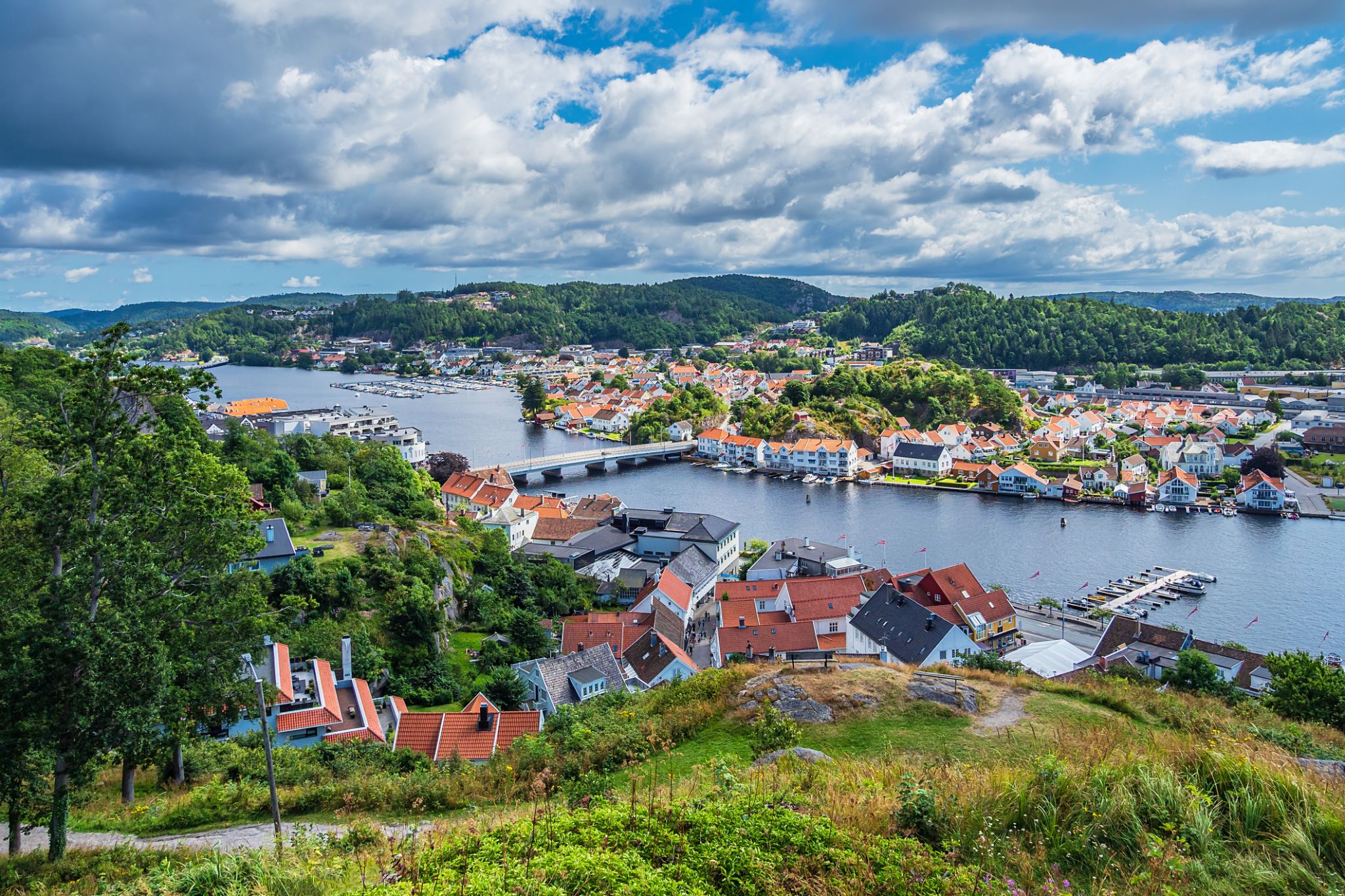
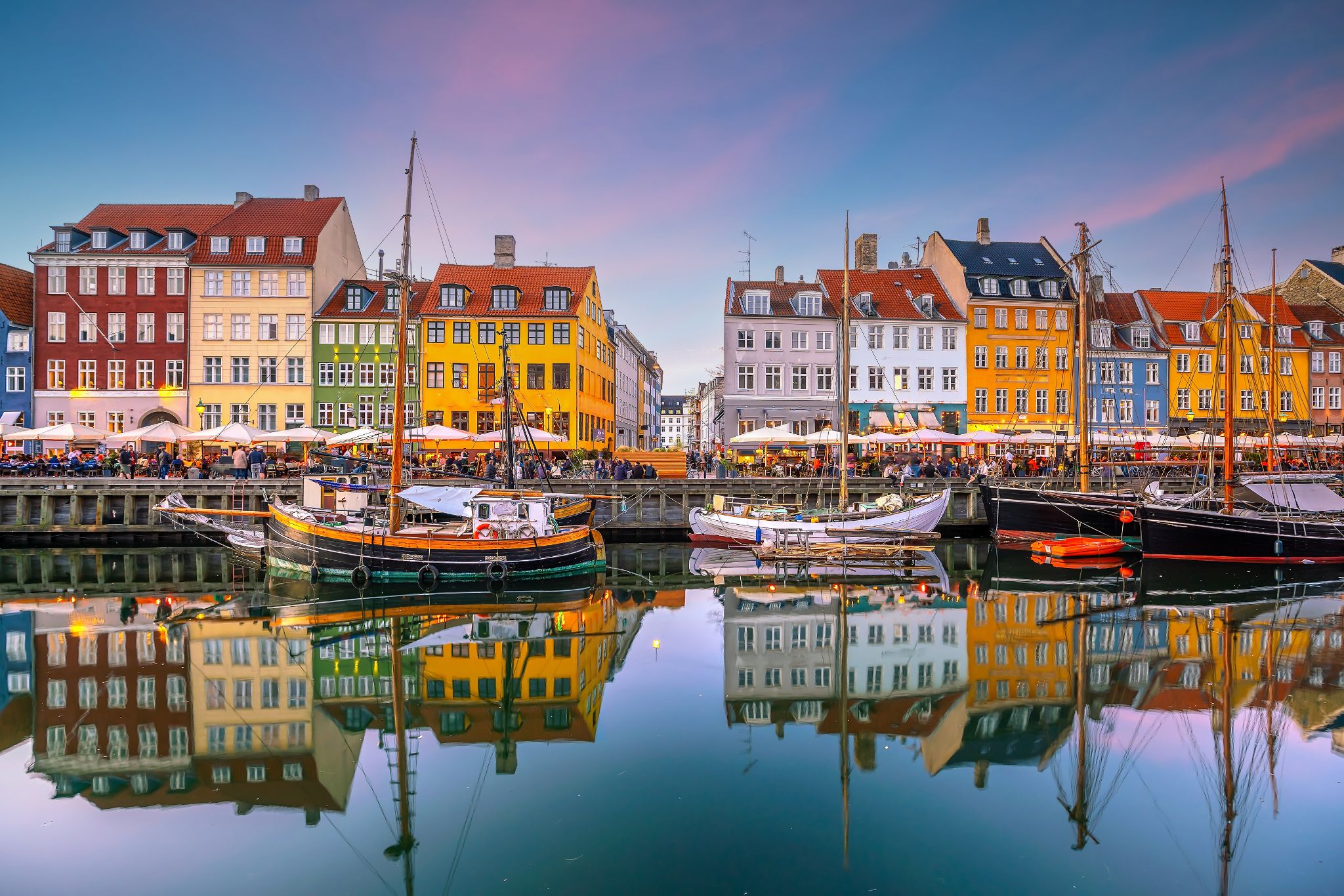
the capital and chief port of Denmark, a city that occupies the eastern part of Zealand and northern part of the island of Amager; population 518,574 (2009).

the capital and chief port of Denmark, a city that occupies the eastern part of Zealand and northern part of the island of Amager; population 518,574 (2009).
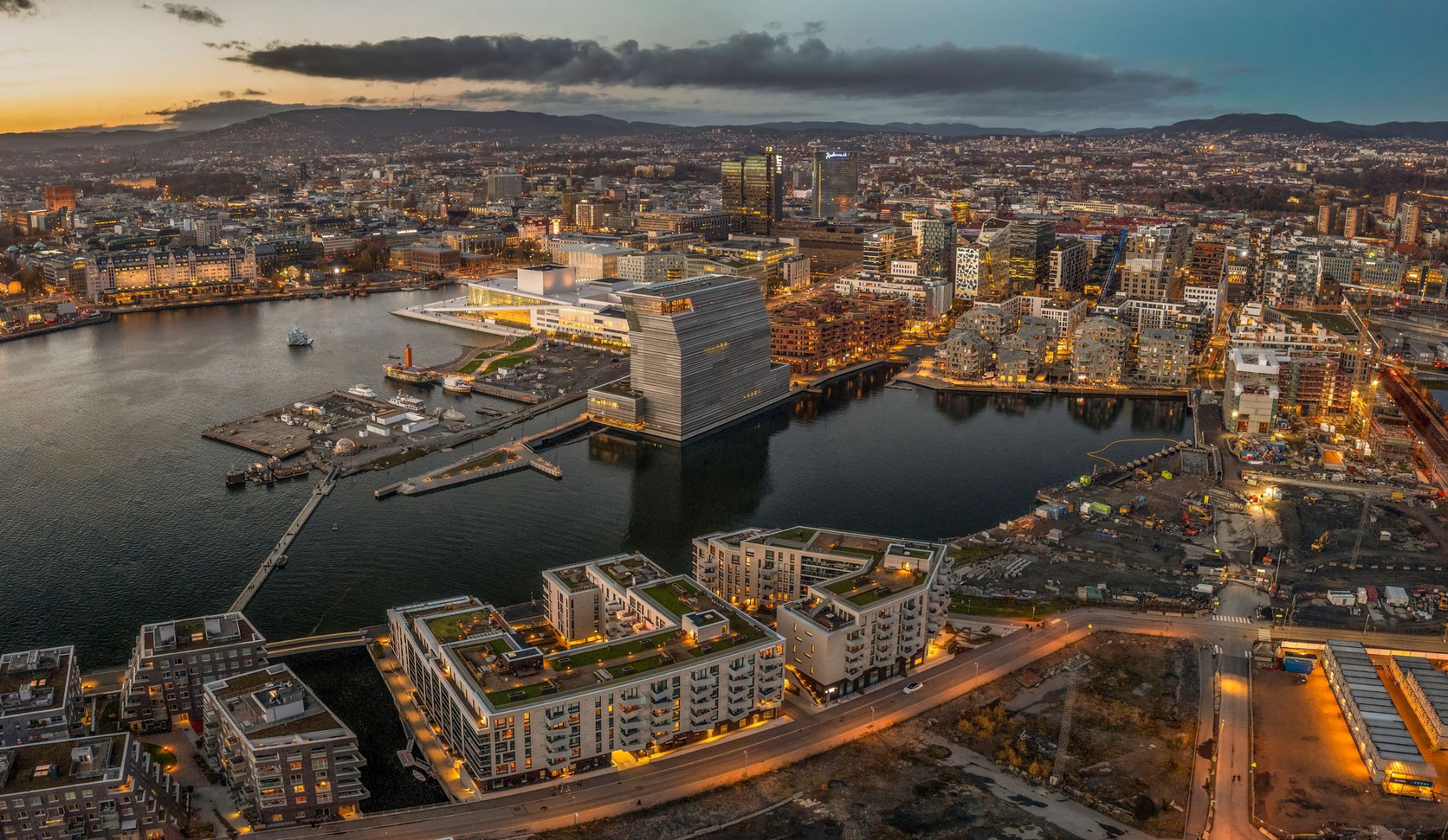
Oslo is the capital and most populous city of Norway. It constitutes both a county and a municipality. Founded in the year 1040 as Ánslo, and established as a trading place in 1048 by Harald Hardrada, the city was elevated to a bishopric in 1070 and a capital under Haakon V of Norway around 1300. Personal unions with Denmark from 1397 to 1523 and again from 1536 to 1814 reduced its influence, and with Sweden from 1814 to 1905 it functioned as a co-official capital. After being destroyed by a fire in 1624, during the reign of King Christian IV, a new city was built closer to Akershus Fortress and named Christiania in the king's honour. It was established as a municipality on 1 January 1838. The city's name was spelled Kristiania between 1877 and 1897 by state and municipal authorities. In 1925 the city was renamed Oslo.